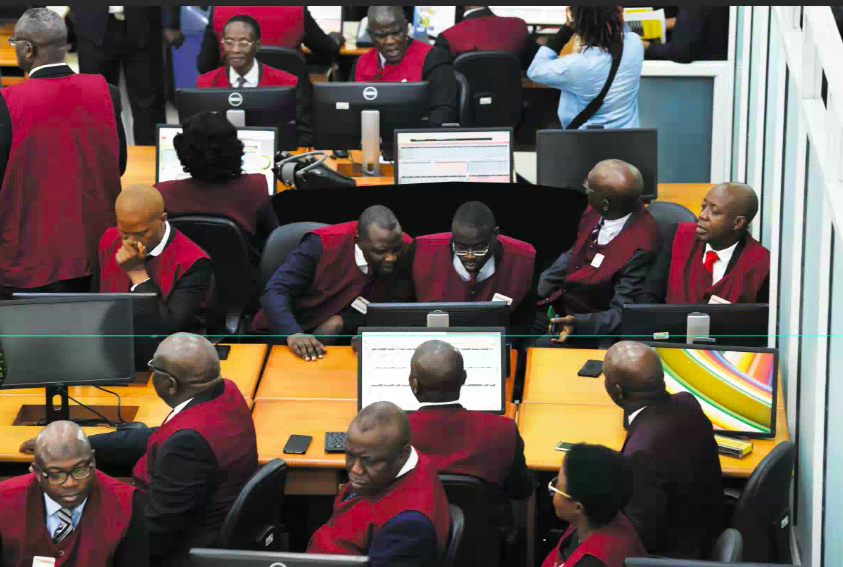As occurrence of climatic change related risks heighten across West African sub region, insurers said it is time to take precautionary measures like geo coding, parametric piloting in their risk pricing to cope with current challenges, writes Ebere Nwoji
Losses from natural disasters as a result of climatic change, which has taken its tolls on lives and properties, is now becoming worrisome occurrences to insurance operators not only within Nigeria but across the West African sub region.
Research and statistics on this have shown that the problem transcends West African sub-region to other African countries.
Findings by environmental experts and even insurers themselves showed that most African countries have received fair share of effects of these natural disasters in form of flooding, droughts, Sahelian heatwaves, coastal erosion and storms which have negatively affected the people.
Behind these disasters and their wanton destruction of lives and properties are insurance and reinsurance companies paying heavy claims to the affected people with insurance covers.
The increasing weight of these claims, most of which are dollar denominated claims, compelled the regional insurers under the aegis of West Africa Insurance Companies Association (WAICA) converge in Nigeria for this year’s edition of the West Africa Insurance Company Association (WAICA).
The sub regional insurers centred discussions at this year’s edition of the annual education conference on climatic change and regional insurers.
The theme of the conference was, “The West African Insurer in the Face of Climate Change. “
The insurers admitted the fact that the realities of climate change are no longer theoretical risks but living experiences reshaping their markets, balance sheets, and the societies.
They noted that at the sub regional level, there have been witnesses of climate events that once seemed extraordinary become disturbingly routine.
In his key note address at the conference, the Group Managing Director Custodian Group, Mr Wole Oshin, described the climate change related risks coming the way of insurers as business challenges.
He noted that climate volatility directly affects underwriting assumptions, claims frequency, solvency margins, and reinsurance structures.
“It tests our risk models, strains our capital, and challenges our ability to price, pool, and transfer risk sustainably. Yet, within these challenges lies opportunity, the opportunity to lead in resilience, to innovate in risk management, and to position insurance as a key driver of adaptation and recovery. This conference, therefore, is more than an academic exercise. It is a strategic gathering to examine how we, as insurers and risk managers, can safeguard both lives and livelihoods in the face of escalating climate threats,” he stated.
New Underwriting framework
He said the development would enable insurers to explore new underwriting frameworks, parametric solutions, regional risk pools, and green investment strategies that reflect the changing climate realities of our time.
He said, “Let us approach our deliberations with openness and urgency. Let us speak not only to losses, but of leadership, not only of exposure, but of opportunity. The insurance industry in West Africa must not only survive the era of climate change, it must define it, by building the structures of resilience that our economies and communities so urgently need.”
THISDAY took a critical look at cases of climate change outcome on individual countries including Nigeria.
According to media reports, in 2022, over 200 communities in four local councils of Rivers State, namely – Ogba/Egbema/Ndoni (ONELGA), Ahoada West, Ahoada East and Abual Odual were displaced by flood in addition to communities in Anambra, Kogi, Bayelsa and Delta states, which were swept by flood in the same year.
This is in addition to thousands which were displaced by flood from their homes whom government settled in various Internally Displaced People’s (IDP) camps since 2012.
According to the River State flood report, within the same year, six persons lost their lives while trying to cross through the flood to the road at Ihuike community in Ahaoda axis of the East-West road.
An eyewitness said a woman and her son were swept off by the flood. While the baby was later found dead, the mother has since remained missing.
It was also gathered that within the same year eight persons in a boat were also swept off by a flood, leaving four dead while others survived.
Media reports said that the Orashi region of River State comprising the three councils experienced the worst flooding in 2012 where several lives were lost. Also, in 2016, 2017, 2018 and 2020, flooding wreaked havoc in Rivers State but no concrete action was taken by the government to address it.
Outside Nigeria, in 2017 in Sierra Leone, experts report said there was a catastrophic mudslide after heavy rains which killed more than 1,100 people and wiping out entire communities in Freetown.
Sahelian heatwaves
Reports also indicated that in Niger and Chad there were recurrent droughts and Sahelian heatwaves that devastated crops and livestock. In Gambia and Senegal, coastal erosion and storm surge are said to be eating away at communities, displacing families and threatening tourism assets.
Oshin noted that these were real events affected real balance sheets. On their effect on insurance business, Oshin said the natural disasters drive claims spikes, capital strain, and reinsurance market scepticism.
At the conference, insurers deliberated on how they can assess the various Intervention funds set up by governments.
They also deliberated on the need to evolve new products that would cushion the effects of climate change.
They also deliberated on retooling their operational model in terms of premium charges, the various steps to be taken before stating their premium.
They agreed that claims are trust engine of insurance business; therefore, it must be paid timely and payment made public.
Insurers agreed to conduct what they called parametric pilot test before charging their premium to avoid over dependent on reinsurance.
Insurers were also advised to geo code every policy to ascertain the location of the property being insured, the risk it is primed to before charging their premium.
Also speaking former Deputy Finance Minister of Sierra Leone, Mr Bukan Kaloko noted that the ongoing global climate change crisis, along with its far-reaching consequences, presents significant challenges for the insurance sector.
He noted that as the frequency and intensity of natural disasters rose, climate change was leading to increasingly severe weather occurrences. According to him, in 2024, the U.S. is projected to experience approximately $182.7 billion in damages related to climate events. Also, 2023 marked the first time in six years that worldwide insured losses from natural catastrophes surpassed $100 billion without a single event causing over $10 billion in damages, indicating a broader spread of smaller yet costly events.
He noted that West Africa stands on the front lines of the climate crisis, despite contributing less than 4 percent of global greenhouse gas emissions.
“Our region faces a complex tapestry of climate-related risks that threaten economic stability, food security, and sustainable development. The climate risk profile for West Africa is characterised by increasing frequency and severity of extreme weather events, including droughts in the Sahel, devastating floods in coastal cities, erratic rainfall patterns affecting agricultural productivity, and rising sea levels encroaching on our vital coastal infrastructure.
Cascading impacts
He said the interconnected nature of these climate risks creates cascading impacts across sectors.
“A drought event does not just affect agricultural output; it triggers chain reactions across food security, water availability, energy production (especially hydroelectric power), population displacement, and ultimately financial stability. For us as insurers, this interconnectedness means we can no longer view risks in isolation but must adopt a systemic risk perspective. Critically, our region faces significant data and modelling challenges that impede accurate risk assessment. As identified in climate services research, there remains “limited locally ground-trothed delivery of impact-based forecasts” (Frontiers, 2022) and a serious constraint in the “availability of robust climate data” needed to “understand climate risk exposure at the local level” (CPI, 2024).
He said without hyper localised data and sophisticated modelling capabilities, insurers struggle to accurately price climate risk, develop innovative products, and ensure “our own solvency in the face of accumulating exposures.”



